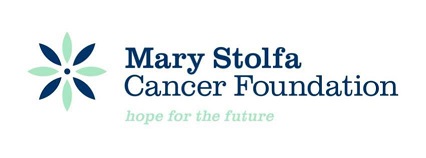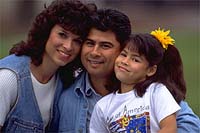 |
 |
 |
|
People diagnosed with cancer and their families face many challenges that may leave them feeling overwhelmed, afraid, and alone. It can be difficult to cope with these challenges or to talk to even the most supportive family members and friends. Often, support groups can help people affected by cancer feel less alone and can improve their ability to deal with the uncertainties and challenges that cancer brings. Support groups give people who are affected by similar diseases an opportunity to meet and discuss ways to cope with the illness. 1. How can support groups help? People who have been diagnosed with cancer sometimes find they need assistance coping with the emotional as well as the practical aspects of their disease. In fact, attention to the emotional burden of cancer is sometimes part of a patient’s treatment plan. Cancer support groups are designed to provide a confidential atmosphere where cancer patients or cancer survivors can discuss the challenges that accompany the illness with others who may have experienced the same challenges. For example, people gather to discuss the emotional needs created by cancer, to exchange information about their disease—including practical problems such as managing side effects or returning to work after treatment—and to share their feelings. Support groups have helped thousands of people cope with these and similar situations. 2. Can family members and friends participate in support groups? Family and friends are affected when cancer touches someone they love, and they may need help in dealing with stresses such as family disruptions, financial worries, and changing roles within relationships. To help meet these needs, some support groups are designed just for family members of people diagnosed with cancer; other groups encourage families and friends to participate along with the cancer patient or cancer survivor. 3. How can people find support groups? Doctors, nurses, or hospital social workers who work with cancer patients may also have information about support groups, such as their location, size, type, and how often they meet. Most hospitals have social services departments that provide information about cancer support programs. Additionally, many newspapers carry a special health supplement containing information about where to find support groups. 4. What types of support groups are available? Several kinds of support groups are available to meet the individual needs of people at all stages of cancer treatment, from diagnosis through followup care. Some groups are general cancer support groups, while more specialized groups may be for teens or young adults, for family members, or for people affected by a particular disease. Support groups may be led by a professional, such as a psychiatrist, psychologist, or social worker, or by cancer patients or survivors. In addition, support groups can vary in approach, size, and how often they meet. Many groups are free, but some require a fee (people can contact their health insurance company to find out whether their plan will cover the cost). It is important for people to find an atmosphere that is comfortable and meets their individual needs. Cancer Care is a national nonprofit agency that offers free support, information, financial assistance, and practical help to people with cancer and their loved ones. Services are provided by oncology social workers and are available in person, over the telephone, and through the agency’s Web site. Cancer Care’s reach also extends to professionals—providing education, information, and assistance. A section of the Cancer Care Web site and some publications are available in Spanish, and staff can respond to calls and e-mails in Spanish. The Cancer Hope Network provides individual support to cancer patients and their families by matching them with trained volunteers who have undergone and recovered from a similar cancer experience. Such matches are based on the type and stage of cancer, treatments used, side effects experienced, and other factors. Dedicated to ensuring that all people impacted by cancer are empowered by knowledge, strengthened by action and sustained by community. CSC achieves its mission through three areas: direct service delivery, research and advocacy. The organization includes an international network of Affiliates that offer the highest quality social and emotional support for people impacted by cancer, as well as a community of support available online and over the phone. The Research and Training Institute conducts cutting-edge psychosocial, behavioral and survivorship research. CSC furthers its focus on patient advocacy through its Cancer Policy Institute, informing public policy in Washington, D.C. and across the nation. Children's Cancer Web is a web-based site map with information on support groups and charities. Dana-Farber Cancer Institute offers a variety of educational seminars and support groups to help adult patients and their families find tools to regain a sense of control over their lives. There are many other support groups available. Please call us at (516) 859-8165, or e-mail us at info@marystolfacancerfoundation.org for more information. | Chemotherapy Side Effects | Tumor Markers-Grades/Prognosis | Cancer Clusters | Emotional Disorders | End of Life Issues | Loss, Grief, and Bereavement | Living with Cancer | Radiation Therapy | Support Groups | | Return Home | Fundraisers | Donations | Wall of Honor | Stories of Hope | Information on Specific Cancers (A-M) | Cancer Issues | Contact Us | Site Index | |
||
